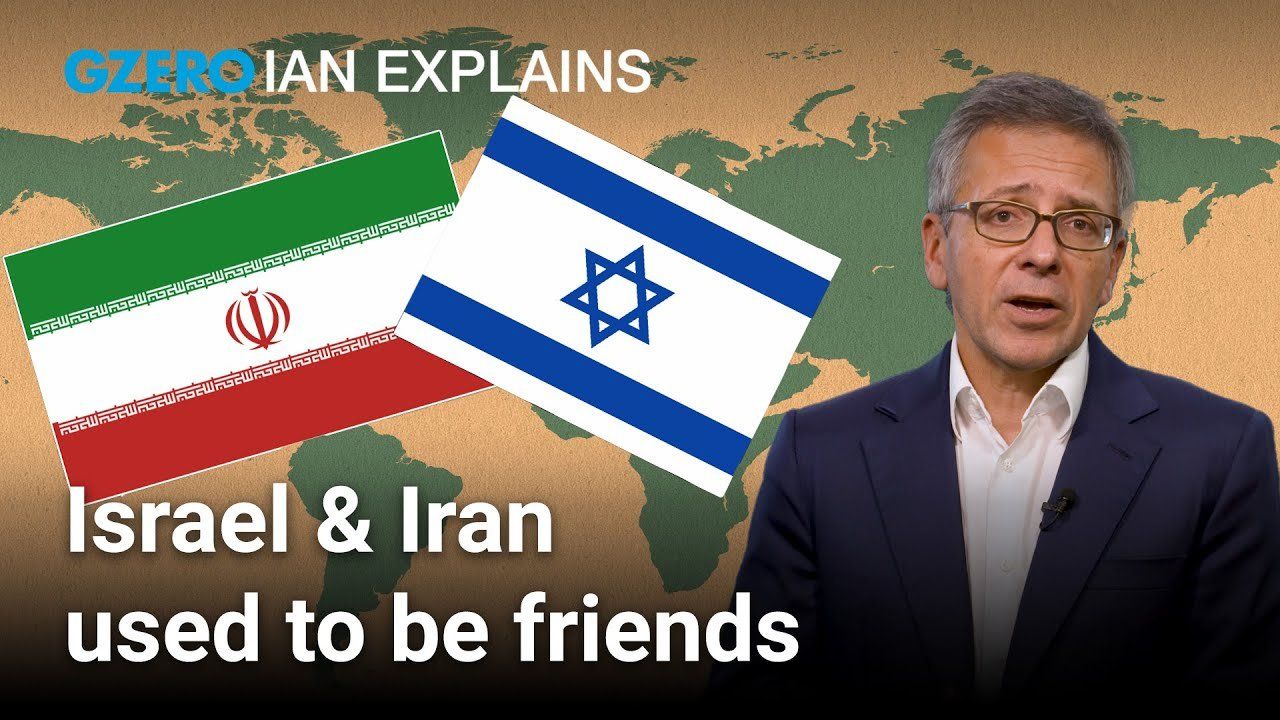Ian Explains
Ian Explains: How Israel & Iran went from friends to enemies

Ian Explains: How Israel & Iran went from friends to enemies | GZERO World

Fun fact: Israel and Iran used to be friends…sort of.
Israel and Iran's complex relationship in the Middle East has seen dramatic shifts, to say the least, Ian Bremmer explains on GZERO World. Iran, as with most of the rest of the Middle East, originally opposed the creation of Israel in 1948 and its UN membership in 1949. But Israel, Iran and Turkey's shared interests as non-Arab states in the region led to covert trade relationships and an intelligence-sharing program codenamed 'Trident Alliance' from 1956 to 1979.
The Iranian Revolution in 1979, however, led to a staunchly anti-Zionist regime in Tehran. In 2023, the major concern is Iran's influence, particularly through Hezbollah in southern Lebanon, which possesses a formidable missile arsenal dwarfing that of Hamas. Iran's proxies, like the Houthi militias in Yemen, have been targeting US assets, resulting in the redirection of the US military in the region and even airstrikes in Eastern Syria.
But there’s a big difference between skirmishes with Iran proxy forces and an all-out US-Israel-Iran war. And given Iran’s nuclear ambitions, that’s something that absolutely no-one, including the Ayatollah in Tehran, wants.
Can Singapore survive, or thrive, in a fractured global economy? Singapore’s President Tharman Shanmugaratnam joins Ian Bremmer on GZERO World.
Think you know what's going on around the world? Here's your chance to prove it.
Prime Minister Narendra Modi, with President of the European Council António Luís Santos da Costa, and President of the European Commission Ursula von der Leyen, at Hyderabad House, in New Delhi, India, on Jan. 27, 2026.
On Tuesday, the world’s largest single market and the world’s most populous country cinched a deal that will slash or reduce tariffs on the vast majority of the products they trade.
This week, Prime Minister Keir Starmer became the first UK leader to visit China in eight years. His goal was clear: build closer trade ties with Beijing.